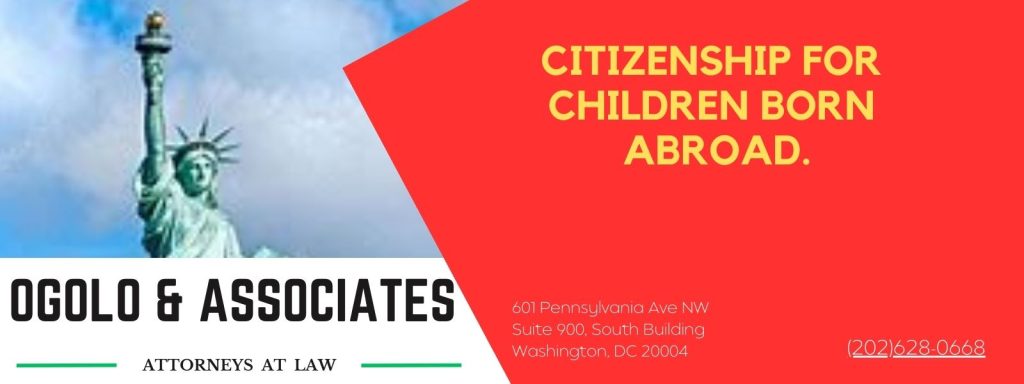This article deals with acquisition of U.S. citizenship by children born abroad where one parent is a United States Citizen and the other parent is not. Generally a person born outside the United States in wedlock to a United States citizen mother and father acquires United States citizenship at birth under §301(c) of the Immigration and Nationality Act, if at least one of the parents resided in the United States or one of its outlying possessions prior to the child’s birth.
A person is born in “Wedlock” when the genetic or gestational parents are (1) legally married to each other at the time of the person’s conception or within 300 days of the termination of the marriage by death or divorce, and (2) both parents are the legal parents under the local law at the time and place of birth.
On the other hand, a person born abroad either in wedlock or out-of-wedlock to a United States citizen father and an alien mother acquires United States citizenship at birth if the United States citizen father has been physically present in the United States or one of its outlying possessions prior to the person’s birth for a period of five years. At least two of those five years must be after the parent turned 14 years of age.
In this case, the United States citizen father must further satisfy the requirements listed in INA §309(a):
-
A blood relationship between the person and the father must be established by clear and convincing evidence.
-
The father was a United States citizen at the time the person was born;
-
The United States citizen father, unless deceased, has agreed in writing to provide financial support for the person until he or she reaches the age of 18 years; and
-
While the person is under the age of 18 years:
-
The person is legitimated under the law of his/her residence or domicile; or
-
The father acknowledges paternity of the person in writing under oath, or
-
The paternity of the person is established by adjudication of competent court.
-
The above rules apply if the person was born after November 14, 1986. On the other hand, a person born abroad and out-of-wedlock to a United States citizen mother between December 24, 1952 and June 11, 2017 may acquire United States citizenship under INA §309© if the mother was a United States citizen at the time of the person’s birth and if the mother was physically present in the United States or one of its outlying possessions for a continuous period of one year prior to the person’s birth.
The rule applicable to the United States citizen father and alien mother also applies to the situation where the person’s mother is a United States citizen and the father is not a United States citizen. This rule came into effect on or after June 12, 2017 as a result of a United States Supreme Court decision in Sessions v. Morales-Santana, 137 S. Ct. 1678 (2017).
CHILD – For the purpose of citizenship and naturalization, is defined as an unmarried person who is
-
The genetic, legitimated, or adopted son or daughter of a United States citizen; or
-
The son or daughter of a non-genetic gestational U.S. citizen mother who is recognized by the relevant jurisdiction as the child’s legal parent.
CHILDREN OF US citizens Residing Outside the US
Children born abroad by one US citizen and residing outside the United States may acquire US citizenship through naturalization if they meet the following conditions:
-
The child has at least one parent, including an adoptive parent, who is a United States citizen by birth or through naturalization;
-
The child’s US citizen parent or US citizen grandparent meets certain physical presence requirements in the United States or an outlying possession;
-
The child is under 18 years of age;
-
The child is residing outside the United States in the legal and physical custody of the United States citizen parent, or of a person who does not object to the application if the U.S. citizen parent is deceased; and
-
The child is lawfully admitted, physically present, and maintaining a lawful status in the United States at the time the application is approved and the time of naturalization.
Consular Report of Birth Abroad
The United States citizen parent of a child born abroad may file Consular Report of Birth Abroad at a United States Embassy or Consular General in the country of the child’s birth. This report is an acceptable proof of citizenship and may be used as proof of citizenship for the purpose of application for United States Passport.
